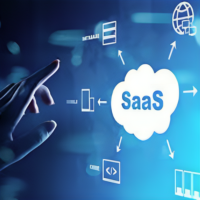Introduction: In today’s business landscape, managing human resources efficiently is vital for the success of any organization, regardless of its size. Human Resource Management Software (HRMS) has emerged as a crucial tool for streamlining HR processes, from recruitment to performance evaluation. As businesses increasingly rely on technology to enhance their operations, the demand for custom HRMS software development has surged. In this comprehensive guide, we will delve into the various aspects of HRMS software development, exploring its benefits, features, and associated costs.
Understanding the Need for HRMS Software:
Human Resource Management Software (HRMS) is designed to centralize and automate HR processes, including recruitment, payroll management, performance evaluation, and employee record-keeping. By eliminating manual paperwork and streamlining administrative tasks, HRMS software enhances organizational efficiency and productivity. Additionally, HRMS mobile applications enable HR managers to access the system remotely, providing flexibility and accessibility.
Benefits of HRMS Software:
- Digitized Employee Database: HRMS software stores employee information electronically, facilitating easy retrieval and management. This eliminates the need for extensive paperwork and ensures data security.
- Payroll System: Automated payroll systems integrated into HRMS software simplify salary calculations and reduce errors associated with manual payroll processing.
- Employee Self-Help Portals: HRMS mobile applications empower employees to update their information, access training materials, and communicate with HR personnel, enhancing engagement and efficiency.
- Performance Management: HRMS software allows HR managers to monitor employee performance, identify strengths and weaknesses, and facilitate training and development initiatives.
- Stress-free Workforce Management: With HRMS software, organizations can efficiently assign tasks, track progress, and evaluate employee performance, streamlining workforce management processes.
- Recruiting Systems: HRMS software streamlines the recruitment process by managing candidate profiles, tracking job openings, and facilitating communication with applicants.
Key Performance Indicators (KPIs) for HRMS Software:
- Job Stability: HRMS software contributes to employee retention by providing job stability and minimizing hiring time.
- Employee Engagement: HRMS software enhances employee engagement through interactive learning modules and communication tools.
- Recruitment Efficiency: HRMS software improves recruitment efficiency by automating candidate tracking and evaluation processes.
Types of HRMS Software:
- Core Operations HRM Software: Focuses on basic HR functions such as workforce tracking, payroll administration, and benefits management.
- Strategic HRM Software: Emphasizes recruitment and talent management features, ideal for employment agencies.
- End-to-end Workforce Management HRM Software: Offers comprehensive employee management capabilities, including recruitment, onboarding, performance tracking, and payroll management.
Popular SaaS-Based HRMS Software:
EZYPayroll: Cloud-based HRMS platform offering extensive HR solutions for personnel management and benefit administration.
Harvest Time and Expense Tracker: Time-tracking platform with invoicing capabilities, ideal for managing employee hours and project costs.
Gusto: All-in-one HR solution catering to small businesses with features like payroll management, employee onboarding, and time tracking.
BambooHR: Simplified HRMS tool offering payroll management, performance tracking, and recruitment features for businesses of all sizes.
The Development Process of HRMS Software:
- Strategy: Define business objectives and requirements for HRMS software development.
- Market Research & Analysis: Analyze market trends and competitor offerings to identify key features and functionalities.
- Wire-framing & Designing: Develop wireframes and UI/UX designs for the HRMS software interface.
- Development: Build the HRMS software using appropriate technologies and programming languages.
- Testing: Conduct thorough testing to ensure the software is free of bugs and glitches.
- Launch & Maintenance: Deploy the HRMS software and provide ongoing maintenance and support services.
Important Features of HRMS Software:
- Payroll: Track employee salaries, bonuses, and benefits.
- Employee Records: Maintain comprehensive employee profiles and job histories.
- Training Management: Offer remote learning and training modules for employee development.
- Talent Management: Facilitate online training and skill development initiatives.
- Benefits Management: Provide information on employee benefits and insurance plans.
- Performance Tracking: Monitor employee performance and conduct performance reviews.
- Document Management: Store and manage employee documents securely.
- Onboarding: Streamline the onboarding process for new hires.
Required Tech Stack for HRMS Software Development:
- Frontend: HTML5, CSS, JavaScript, React Native, jQuery.
- Backend: Ruby On Rails, Node.js, Python, React, Elixir.
- Database: MongoDB, PostgreSQL.
- Web Server: Apache web server, Amazon AWS.
- Analytics: Google Analytics, Zoho Analytics. f. Cloud Storage: Kissflow HR Cloud, iCIMS Talent Acquisition.
Required Team Structure for HRMS Software Development:
- Project Manager: Oversees the development process and ensures project objectives are met.
- Developers: Frontend, backend, and full-stack developers responsible for building the software.
- Designers: Graphic designers and UI/UX designers create the software interface and user experience.
- Testers: Quality assurance experts conduct testing to ensure software quality and reliability.
- System Admin: Manages the technical infrastructure and server configurations.
The Cost of HRMS Software Development:
The cost of HRMS software development varies depending on factors such as features, complexity, and development team location. On average, the cost ranges from $15,000 to $25,000, with hourly rates ranging from $10 to $250 per hour.
Conclusion:
HRMS software has become indispensable for modern businesses seeking to optimize their human resource management processes. With its numerous benefits and features, HRMS software enhances organizational efficiency, improves employee engagement, and facilitates strategic decision-making. By understanding the development process, key features, and associated costs, businesses can make informed decisions when investing in HRMS software development. With the right development team and technology stack, businesses can create customized HRMS solutions tailored to their specific needs, driving growth and success in the digital age.













































